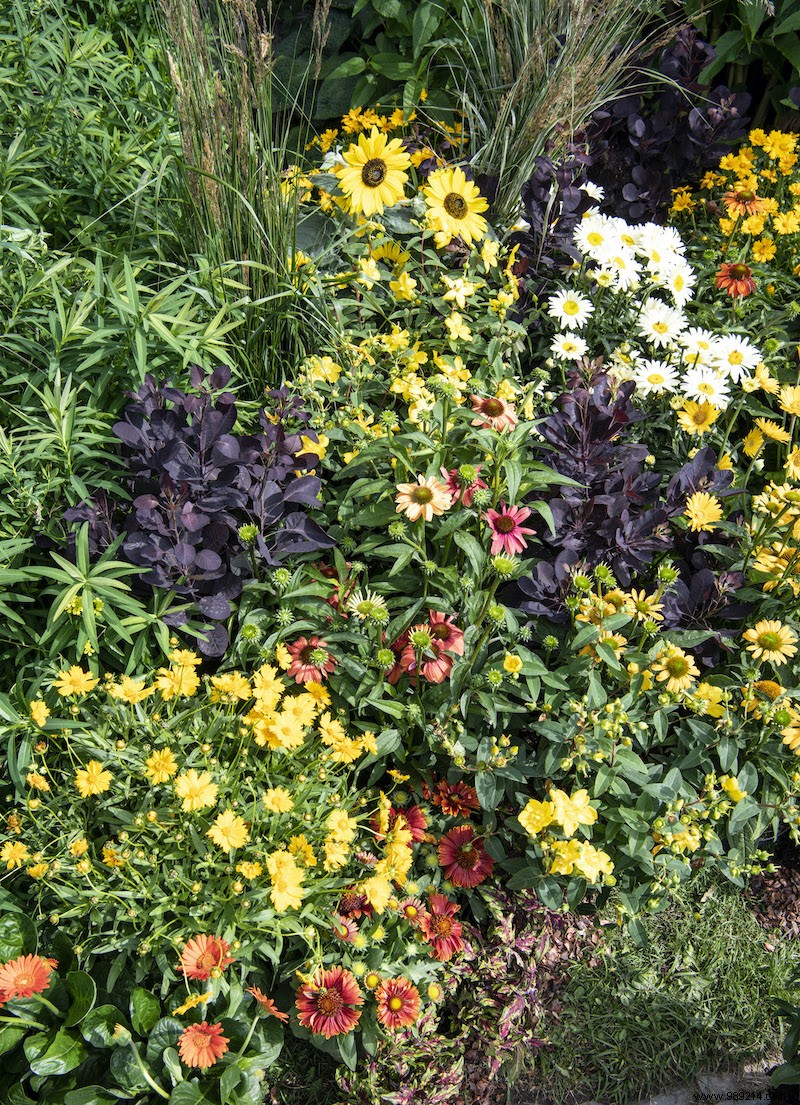Now is the time to enjoy your garden! Unfortunately, this is also the favorite weather of weeds, snails and other pests. Small creepers belong in every garden, but of course you want to prevent them from becoming a pest. Private individuals have been using more chemical pesticides in their garden in recent years, the National Institute for Public Health and the Environment (RIVM) concluded last year. Did you know that these substances are dangerous for humans, animals and the environment? So that must be different! If it is up to Intratuin and the information organization Milieu Centraal, we will switch en masse to the prevention of garden pests and natural, efficient control methods, such as hook-shaped joint scrapers, coffee grounds or boiling water. How does that work? Intratuin provides five biodiversity-friendly pest control tips. Because, a better and greener world starts in our own garden. Long live the wilderness!
Keep your garden in (natural) balance
Animals and insects, weeds and green deposits are part of nature, so also part of a garden, but of course nobody wants a plague. Therefore, prevent pests in the most environmentally friendly way by balancing the ecosystem in your garden. This means that you pay a lot of attention to biodiversity and all kinds of different animal species. Make sure your garden is a nice environment for butterflies and bees, birds and hedgehogs, but also toads and frogs. Many of these animals love snails! Especially important to remember:a garden that is too tidy does not provide shelter for animals and will therefore not have a good natural balance. All life in your garden keeps each other in balance, so you prevent pests and nuisance. What to do if you still suffer from a garden pest? Do you let nature take its course and take the consequences for granted, or do you immediately turn to chemical pesticides? Chemical pesticides – the name says it all – are only (temporary) pesticides. They are also harmful to humans, the environment and animals! Preventing and naturally controlling garden pests is much more effective, because you tackle the cause. So, do the environment, yourself and your garden the greatest favor. After all, it is your living environment and you want to enjoy it as pleasantly and as healthy as possible.

The following biodiversity-friendly pest control tips will keep your garden in balance:
Long live the wilderness | Tiles out, plants in.
Many people think that a tiled garden is less work than a botanical garden. That's a misunderstanding. Too many tiles is more work:on unused parts of the terrace you are more likely to suffer from green deposits and weeds! The most maintenance-friendly is a garden with smart ground covers, because then there is simply no place for weeds. These green carpets are also good for biodiversity and for living space for small animals. So a win-win! Do you have pavement? Broom this regularly - this way you prevent green deposits and weeds. Is there still a green attack? Then combat this with hand and enemy such as manual hoeing and weeding, heat or water power. Immediately a good work-out!
Keep your distance | Keep slugs away.
Protect your young plants against snails, for example by making a barrier of crushed eggshells or sawdust. Sprinkle these materials in a border about 5 cm wide around the plant - the snail will not like to crawl through this. Prefer a completely plant-based solution? Then plant strongly scented herbs, such as rosemary, thyme, garlic and sage, between your young plants. Et voilà, the snails spontaneously keep their distance!
Let the river in | Make room for a (mini) pond.
Something that you may not initially think about when preventing a snail infestation is creating a pond. Frogs and toads find snails a very tasty snack! And it really doesn't have to be a huge puddle of water that takes up half your garden. A large planter or small pond is big enough - dig it in, use some aquatic plants and make the water accessible for frogs and toads with a slope or stones. Hedgehogs will also thank you – they can swim well, use ponds as drinking troughs and feast on snails! Can't find a pond in your garden? You can also offer hedgehogs easy access to the garden with, for example, a hedge or hole in the fence.
Start with the basics | Solutions against weeds.
Don't you feel like getting to work on your knees with a joint scraper in the garden every week? Then deny weeds the chance to grow through your patio or path! You can use this method when laying new pavement. First level the surface and then use a (biodegradable) anti-root cloth. The name says it all:this prevents rooting, so that no grass or weeds can grow through it. When the tiles have been laid, it is a good idea to regularly go over them with joint sand. This way weeds have little or no chance!
There is always a way | Be welcome, natural enemies Prevent a snail infestation in the most environmentally friendly way by balancing the ecosystem in your garden. This means that you pay a lot of attention to biodiversity and all kinds of different animal species. Make sure your garden is a nice environment for butterflies and bees, birds and hedgehogs, as well as toads and frogs – most of these animals love snails. Especially important to remember:a garden that is too tidy does not provide shelter for animals and will therefore not have a good natural balance. All life in your garden keeps each other in balance, so you prevent pests and nuisance!